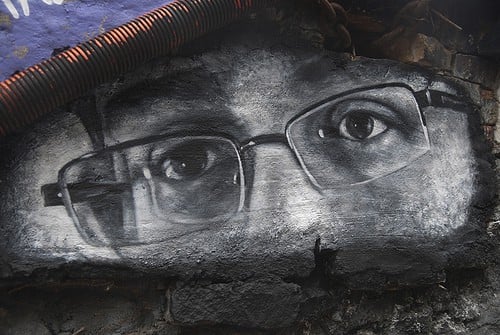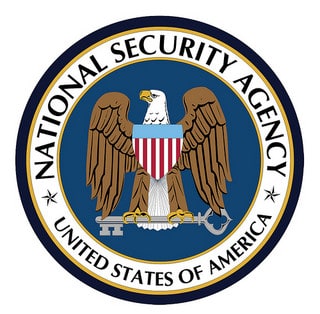“¿Que piensas de Snowden?” What do you think about Snowden?
I almost missed the question, it was so unexpected. Fortunately, it wasn’t the first time I had been asked about that particular person. By this point, I knew that Snowden was not some obscure new Spanish word, but Edward Snowden, American whistleblower. And whether I had expected it or not, he was of major interest to a lot of the people I met in Brazil while traveling for World Youth Day. It seemed like whenever the conversation turned to the fact of my American-ness, that was the question on everybody’s minds – Peruvians, French, Venezuelans all wanting to get a real insider’s take on this breaking news story.
Except I can hardly call myself an insider on this one. The story of Edward Snowden had registered briefly with me before I had left the U.S. (and the 24 hour news cycle) behind. I seemed to remember him getting shuttled out of Hong Kong to the Moscow airport, of all places. I felt a vague pity for the guy… the words “Moscow airport” conjured up images of Soviet brutalist architecture and American brutalist security lines. But I had hardly followed the case before I left, and now that I was on the road, I had even less opportunity to keep up to date. So when it came up, I answered the question with some vague complaints about Barack Obama doubling down on the flawed “War on Terrorism” and let the matter drop.
Except I didn’t…or couldn’t let the matter drop. What was it that was making all these people so curious? I wondered. So when I returned to the U.S. last month, I started reading about the revelations that Edward Snowden made – that the NSA is “intent on making every conversation and every form of behaviour in the world known to them” – and I noticed myself getting more and more uncomfortable. I had always assumed that the government was spying on me and that my sporadic social activism and Catholic anarchist rhetoric warranted some slender F.B.I. file, 1 but I had certainly never had to confront these possibilities as a practical reality in my life. But here was the evidence, the reality, and I was at a loss as to how to respond.
On the one hand, protecting innocent people from violence is unquestionably a great good – one of the most important functions of government. Intelligence gathering actually seems to be a relatively nonintrusive means of preventing violence (that is, much less intrusive than a cruise missile or decade long military operation). I can only be grateful for those planned attacks which legitimate intelligence work has prevented.
Yet the various surveillance programs that Snowden revealed seem far more intrusive than they need be. Nor does the system of checks and balances designed to limit the data collection seem to have been capable of prevent abuses, both intentional and accidental. And scariest of all, the policy of the former head of the NSA seems to have been complete data acquisition – that’s right, a collection of all the information processed online that could later be searched when a person (or lover) of interest surfaced.
In this quandary, I began to wonder what Catholic social teaching might say about this whole mess. I had looked to it to help me sort out my response to complex issues before, from the nuclear arms race to abortion and the death penalty. Could it help me think through the current debate over U.S. surveillance?
* * *
Curiously enough, the Catechism doesn’t have an entry for “clandestine mass electronic surveillance data mining program.” That meant I had to do my own investigating to figure out what resources a concerned Catholic might apply to think about PRISM and its assorted allies.
I found myself drawn to reflect upon the principle of subsidiarity, one of Catholicism’s most unique modern contributions to social thought. Simply put, the idea of subsidiarity is that matters should be done by the lowest, most local, and least centralized level and of social organization that can effectively take care of it.
Take for example, an average American family. (I believe it is traditional here to make some sort of joke about the impossibility of having 2.5 children, but I was never good with statistics, even joke statistics, so I will move on.) In order to eat, someone must prepare dinner for each of the members of the family. If each individual were in charge of preparing their own dinner, this would be the most individualized level of social organization, but it would mean that little baby Liam would probably go hungry. Not to mention the fact that Lord Barkelby would probably never figure out how to get his crème brûlée to caramelize properly.
So instead, you have City Hall cook dinner for you instead. Unfortunately, voter pandering by local politicians would mean eating breakfast for dinner every day. (Got my vote!) Not like “part of a balanced breakfast” for dinner, either. Knowing the state of our politics, it’d be like a bowl of cookie crisp/chocolate chip omelet/donut ice cream sandwich breakfast. Yeah, that wouldn’t work, either.
No, it would be best for all involved to have one of the adults in your family – one of the parents – cook for the entire family. Everybody gets fed consistently, and the meal comes from people directly involved in and committed to the family. And strange as it may sound, in the case of national security, it does seem that the federal government is the adult in the “family”. That is, the federal government is the only one capable of consistently and effectively providing for protection against international threats.
So, as long as we as a people desire the kind of security and protection that depends on clandestinely gathering information, the principle of subsidiarity validates the apparatus to accomplish this to be national, including espionage and intelligence organizations like the NSA. The NSA has a valid function, but how about the way in which it has been pursuing that function?
* * *
Much of the Catholic social thought of the past 100 years grappled with the reality of the Cold War and the competition between communism and capitalism as economic systems. While the Church regularly criticized capitalism for its elevation of the economic good above the level of the human good, communism came under fire for attempting to counter this economic vision in a manner that disregards the importance of the individual member of society. In effect, communism was accused of desiring the economic good of the human person so much (at least in theory) that those people could not be trusted to make decisions which might jeopardize that good!
In the terms of the principle of subsidiarity, communism gathered too much power to the central government, the higher level of organization, and did not allow rightful decisions to be made by the individuals and lesser organizations at lower levels of society. The “adults” (federal government) don’t always know what’s best in every situation, it turns out. Pope John Paul II described this as a type of totalitarianism where “some people, by virtue of a deeper knowledge of the laws of the development of a society, or through membership of a particular class… are exempt from error and can therefore arrogate to themselves the exercise of absolute power.”2
But with a few choice alterations, this definition of totalitarianism seems unsettlingly close to describing the situation
described by Snowden’s series of leaks: “Some people, by virtue of being agents tasked with our national security or through membership of a particular class (i.e., those who passed a background check) are exempt from error and can therefore take for3 themselves the exercise of absolute power.”
You can spin down the irate comment generators. I did not just say that America (or the NSA) is a form of totalitarianism. I’m just saying that for me, this “intelligence gathering” is getting a little too close for comfort.
Yes, there are limits on who the NSA can spy on. These limits just seem pretty porous. Yes, there is a court to monitor and discipline any abuses of power. But this court just doesn’t seem to be too effective in preventing those who abuse that power. I don’t think I would argue that the NSA has managed to acquire absolute power, but in an information age, absolute information could become absolute power pretty quickly.4
* * *
Perhaps it is foolish to worry about government data collection when any one with a computer can verify which local hipster is the current mayor of the Authentically Sourced Salami House down at University Ave. and 19th Street. And perhaps, if I was put in charge of the world (Mayor: Chris S.), I would choose a less networked, less wired way of life for us all that would enable more privacy. But realistically, playing grumpy old guy cannot change the fact that the way we interact is changing and that one of the consequences of these new ways of connecting will be that lots of people will know more about who we are and what we do, up to and including old flames, advertising conglomerates, and, yes, the federal government.
And that is why it is so crucial that we have this conversation now. We need to determine what kind of monitoring we will allow these new surveillance networks to perform. If we are to prevent both absolute information and absolute power being concentrated in a few hands, we will need to have ways of checking in on those who are doing our spying and effective ways of reining them in when they overstep their bounds – something that is not happening now.
While national security and its practice of spying will always remain a federal responsibility, decision-making about how to go about that spying, both in terms of who can be spied upon and how, must remain at the most local level possible. The citizens and their representatives must make these decisions, not the spies themselves. Otherwise, it is not all that unrealistic to expect that someday a pair of all-seeing eyes on the computer monitor will decide for us when we can have breakfast and when we can have dinner.5
* * *
The cover image is from Abode of Chaos and can be found at Flickr here
— — — — —
- An avid Douglas Adams reader in my youth, I imagined the extent of it as a single post-it note saying: “Mostly harmless.” ↩
- Centesimus Annus, §44. ↩
- Ok, so I didn’t need to change that phrase to apply the quote. I just couldn’t use the word arrogate with a straight face. Maybe it sounded better in the Latin… ↩
- After all, even that most savory of philosophers Francis Bacon said, “Knowledge is power.” ↩
- Amazingly, I have just finished an article on NSA surveillance without linking to John Hodgman’s hilarious animated series Codefellas. There, just fixed that. ↩





